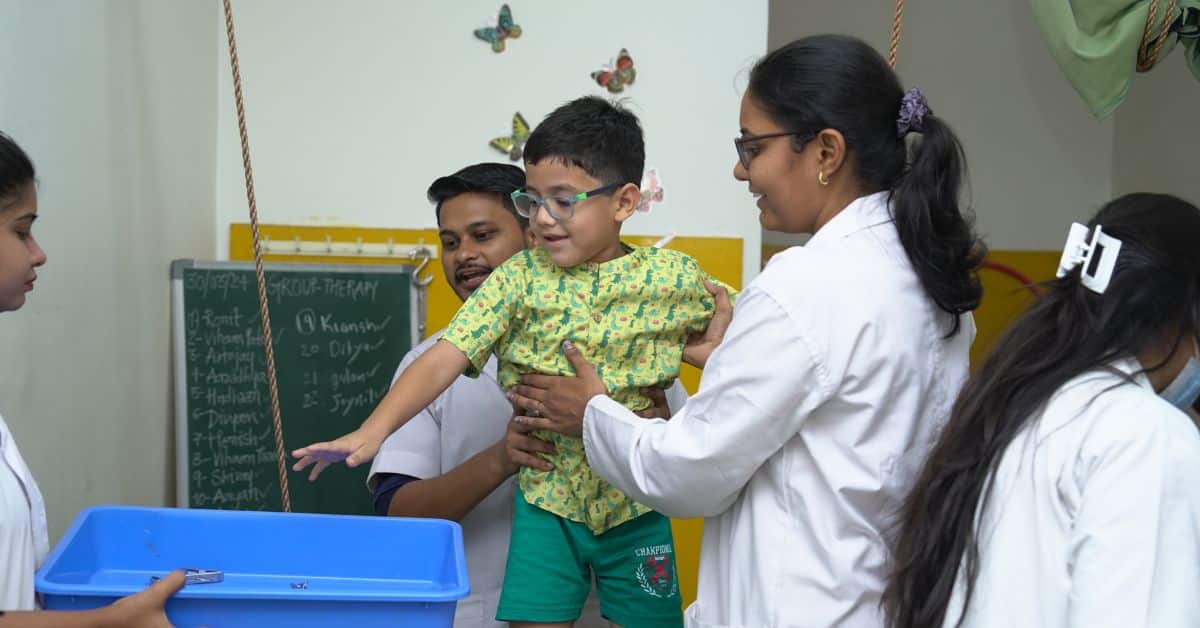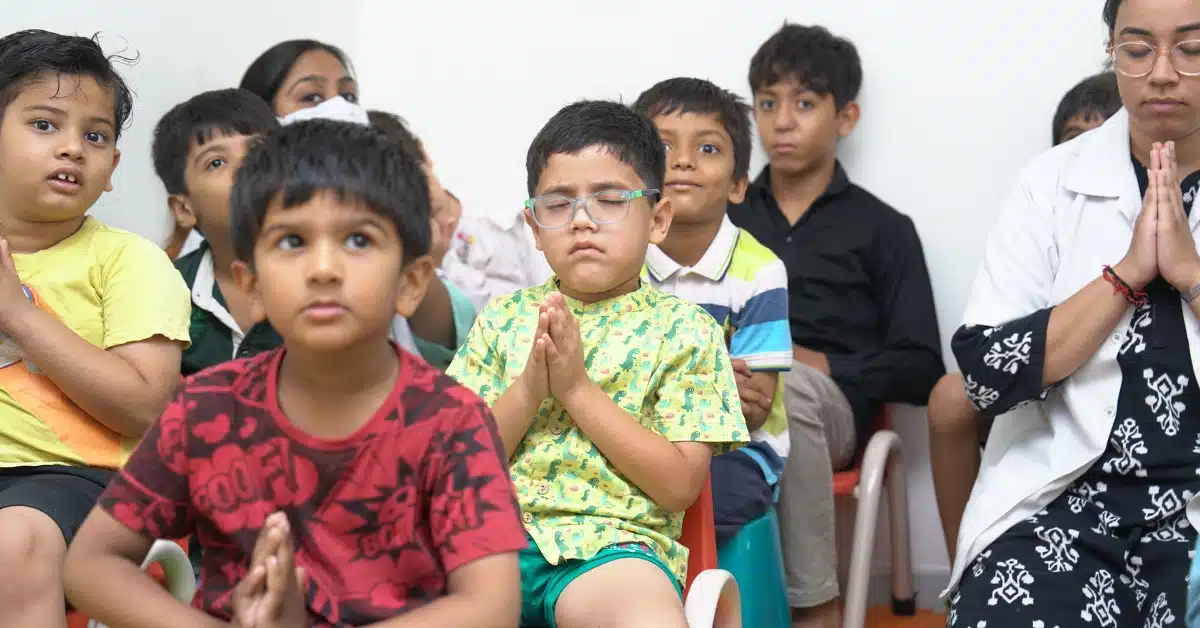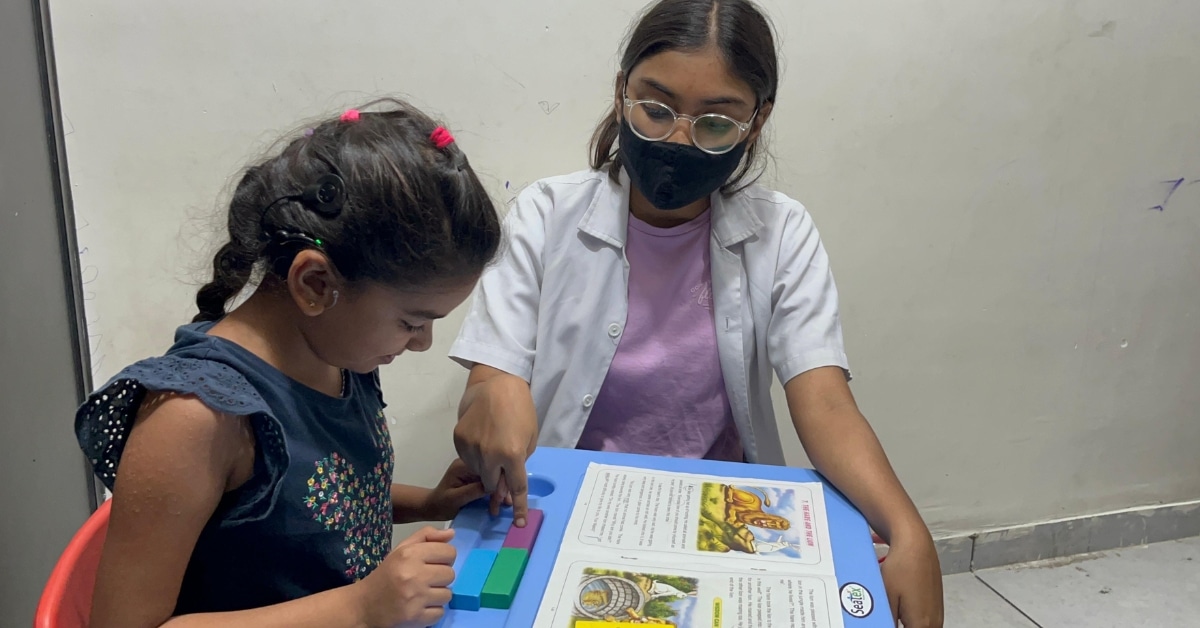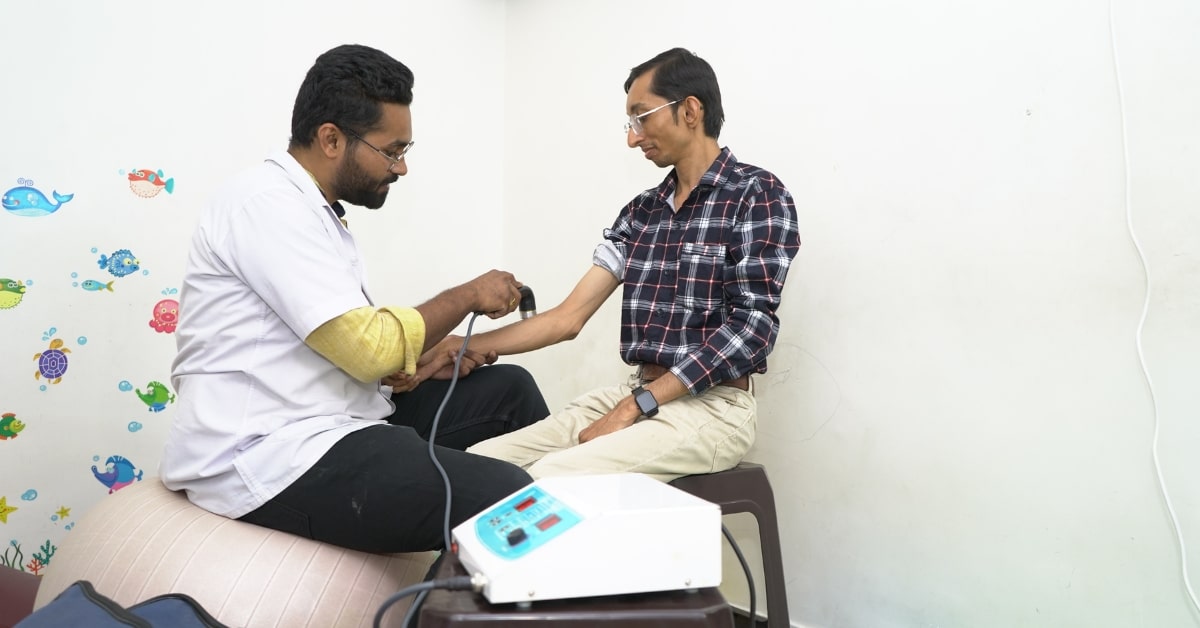
Play Therapy Centre in Vadodara
RDCC Healthcare is the top Play Therapy Centre in Vadodara, Our Play Therapy Specialists offer a safe space for children’s emotional growth through Play Therapy and are dedicated to providing a supportive environment where children can process emotions, resolve conflicts, and develop coping skills.
What is
Play Therapy
Play Therapy is a specialized form of Psychotherapy designed to help children Explore and Express their Thoughts, Feelings, and Experiences through Play. It recognizes that Play is a natural medium for Communication and Self-expression in Children that allows them to Process Emotions, Resolve Conflicts, and Develop Coping Skills in a Safe and Supportive Environment. Through Play Therapy, children engage in various Play Activities, Games, and Creative Exercises facilitated by a Trained Play Therapist. These activities are carefully selected to address the Child’s Unique Needs, Goals, and Developmental Level while promoting Emotional Healing, Growth, and Resilience.
The Play Therapist creates a warm and accepting Therapeutic Environment where children feel comfortable expressing themselves freely. They provide Empathy, Validation, and Support as children explore their Inner World, Work through Challenges, and Develop Positive Coping Strategies.
Play Therapy is grounded in theories of child development, attachment, and psychology, drawing on principles from psychodynamic, humanistic, cognitive-behavioral, and family systems approaches. It is a versatile and adaptable intervention that can be tailored to meet the needs of children facing a wide range of emotional, behavioral, and developmental challenges.
Goals of
Play Therapy
Play Therapy utilizes a child’s natural world of play to address a variety of Developmental and Emotional Needs. Here are some of the Common Goals of Play Therapy:
Approaches to
Play Therapy
Play Therapy itself is a broad term, but there are several different Approaches Therapists can use in Play Therapy. Here are some of the Common Approaches for Play Therapy:
Non-Directive Play Therapy
In this approach, the Therapist takes a non-directive role, that allows the Child to lead the Play Sessions. The Therapist provides a Safe and Supportive Environment for the child to Explore and Express themselves freely through Play. This approach emphasizes the Importance of the Child’s Autonomy and Self-Expression in the Therapeutic Process.
Directive Play Therapy
In Contrast to Non-Directive Play Therapy, Directive Play Therapy involves the therapist taking a More Active Role in guiding the Play Sessions. The therapist may introduce specific Play Activities, Games, or Therapeutic Interventions that are tailored to the Child’s Needs and Goals. This approach allows the therapist to provide Structure and Direction while still allowing the Child to express themselves creatively.
Cognitive-Behavioral Play Therapy (CBPT)
This approach combines principles of Cognitive-Behavioral Therapy with Play Therapy Techniques to address Specific Cognitive and Behavioral Challenges in Children. The Therapist helps the Child Identify and challenge Negative Thoughts and Beliefs, develop Coping Skills, and Practice new Behaviors through Play-Based Activities and Exercises.
Filial Play Therapy
Filial Play Therapy involves training Parents or Caregivers to conduct Therapeutic Play Sessions with their Children under the Guidance of a Trained Therapist. The Therapist teaches parents specific Play Therapy Techniques and Skills to facilitate Emotional Expression, Communication, and Problem-Solving in their Children. This approach aims to Strengthen the Parent-Child Relationship and promote Positive Family Dynamics.
Narrative Play Therapy
In Narrative Play Therapy, Children use Storytelling and Imaginative Play to explore and make sense of their Experiences. The Therapist collaborates with the Child to create Narratives or Stories that reflect their Thoughts, Feelings, and Experiences, allowing them to Gain Insight, Resolve Conflicts, and Develop New Perspectives.
Therapies involved in
Play Therapy
Play Therapy might look like Fun and Games on the surface, but it’s a Toolbox filled with Therapies that go much deeper. Here are some key Therapies that Therapists use to Unlock a Child’s World and Guide them toward Healing and Growth:
If you believe your child could benefit from Play Therapy and you are looking for a Specialist in Vadodara, our team of Play Therapy Specialists in Vadodara is here to help. Contact Us today to learn more about how we can support your child’s emotional well-being and development through Play Therapy.





